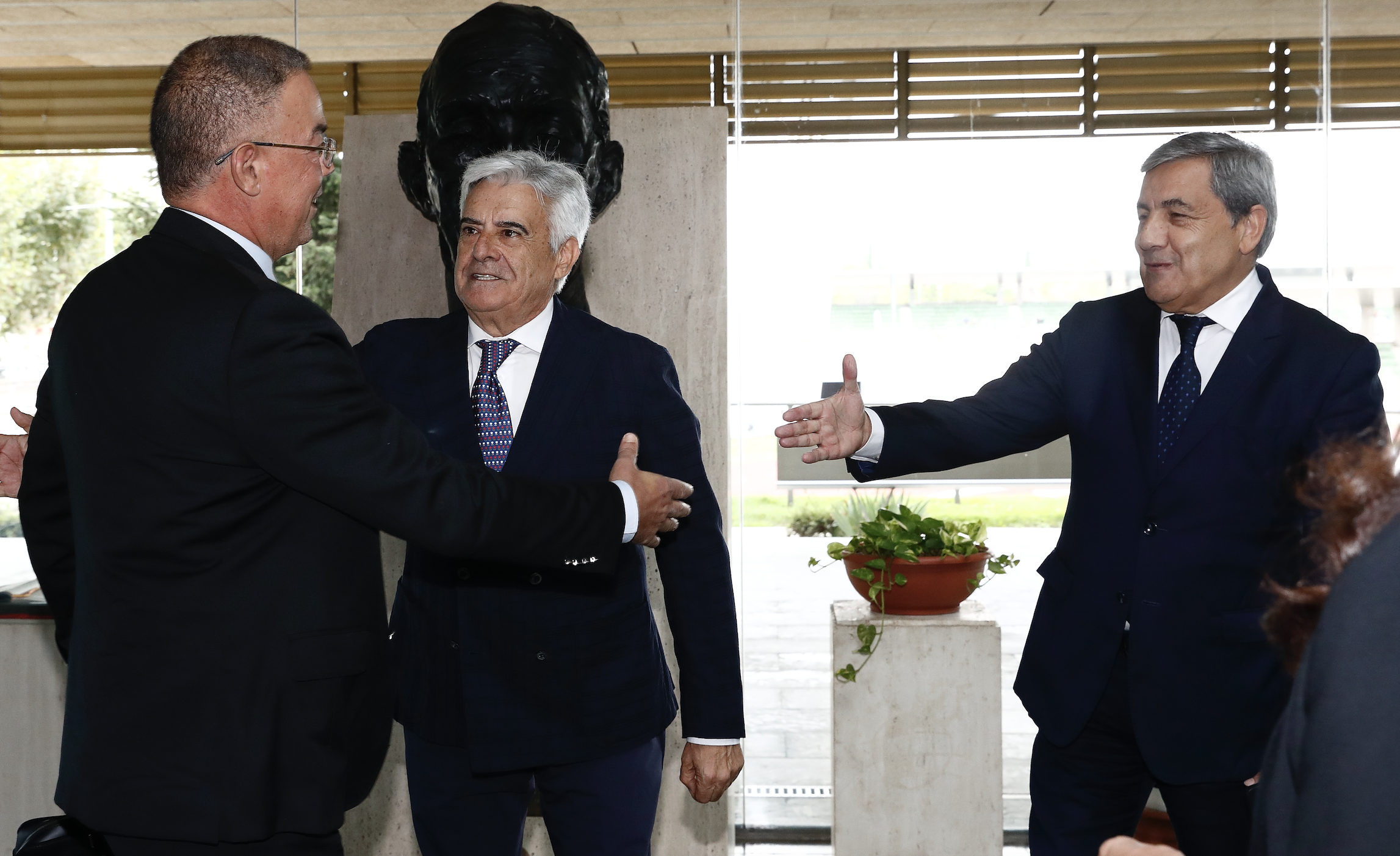By Paul Nicholson
September 18 – The Spain, Portugal, and Morocco joint bid for the 2030 World Cup took another step forward over the weekend with the acting president of the Royal Spanish Football Federation, Pedro Rocha, hosting a meeting with his Portuguese and Moroccan counterparts.
With the Spanish federation having hit the headlines for all the wrong reasons over the behaviour of former president Luis Rubiales at the presentation ceremony of the Women’s World Cup, the meeting at the Spanish FA headquarters in Madrid with Portugal’s Fernando Gomes and Morocco’s Fouzi Lekjaa gave the opportunity to demonstrate that the focus was very much on the joint bid.
On Friday Rocha was confirmed as leading a “transition process at the Royal Spanish Football Federation (RFEF) until the upcoming elections”.
The appointment was made by the Presidents of Autonomous and Territorial Federation and the Board of Directors/Management Committee of the RFEF.
“The RFEF aims to publicly demonstrate an absolute and genuine commitment to continue making necessary changes to restore the functioning of the organization. The institution is convinced that transformations are necessary and, therefore, they will be carried out as swiftly as possible, in a progressive manner,” said an RFEF statement.
Rocha wasted no time moving forward, hosting Gomes and Lekjaa the following day, and emphasising the groundbreaking inclusivity that the joint bid creates. It is the first time that countries from two confederations have bid jointly for a men’s World Cup.
“We walk and move forward hand in hand with a goal that moves and excites us. The FIFA World Cup 2030 project is stronger than ever with the integration of Morocco in our Project,” said Rocha (pictured centre).
Morocco have previously bid unsuccessfully for 1994, 1998, 2006, 2010 and 2026 World Cups. Their sixth bid is the first one with partners.
Lekjaa (pictured left), said: “We know the great responsibility we have, because we are facing a historic opportunity. We will add our best efforts to a great team of professionals, who are working hard to achieve the objective. It is an honor for us to join a candidacy with this strength and scope.”
While Spain is facing a period of institutional self-examination and transitional reform, Morocco is facing the aftermath of the earthquake that shook the country, and the rebuild that will take place. Morocco had been scheduled to play Liberia in Agadir in the final round of qualifiers for the African Cup of Nations 2023.
For both countries the 2030 bid is an opportunity to show the world a renewed positivity and demonstrate the uniting power of the game in the face of institutional and physical challenges.
Fernando Gomes (pictured right), commented: “We are convinced that there will be no better proposal than ours. We have been working for years, in coordination with the best professionals, to achieve the best results.”
FIFA will award the hosting of the 2030 World Cup in December 2024.
Contact the writer of this story at moc.l1722030016labto1722030016ofdlr1722030016owedi1722030016sni@n1722030016osloh1722030016cin.l1722030016uap1722030016

